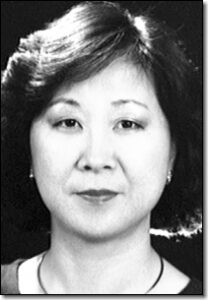
KIM Eun Mee Director
Contact Details:
Prof. KIM Eun Mee
Graduate School of International Studies,
Ewha Womans University, Seoul
E-mail: Eunmee.kim[at]apisa.org
Development and Development Cooperation Program
As the world is still grappling with extreme poverty, war and conflict, terrorism, and climate change, Asia has received a great deal of attention from around the world as the hub of cases of successful development of the "non-Washington Consensus" variety. Asian countries have also shown to the world that even when they may be receiving help from other countries, they have always lend a helping hand to their neighbors near and far. Thus, development cooperation is not just a euphemistic term, but is practiced in the way Asian nations have assisted their neighboring countries.
However, Asia also represents a great deal of diversity in terms of development, development challenges, and development cooperation efforts. Although this region contains two of the largest economies in the world, it also includes many countries with large numbers of people living under extreme or moderate levels of poverty. The region is also exposed to greatest development threats in particular to climate change, as studies have shown that Asia as a region has suffered the greatest damages due to disasters per capita in the 21st century. And the way in which many of the Asian nations have assisted other countries are borne out of their own experience of overcoming poverty and security threats. Thus, we find the rich analysis of cases from Asia as pivotal in leading the world's scholarship and research in the fields of development and development cooperation.
APISA wishes to explore more deeply into the studies of how Asian nations have pursued social, economic and political development in each nation and as a region. Development studies has traditionally been the subject of advanced industrialized countries and their efforts to understand the developing world as their outposts for colonies, resource-rich investment sites, or recipients of foreign aid. Recent scholarship from Asia has demonstrated that Asian nations and Asia produce academically rigorous research that are forcing the world scholarship to change their understanding of the world and Asia.
Recent interest in Asia has shifted to the study of "development cooperation," as Asian nations are increasingly becoming significant donors of development assistance, and more importantly addressing themselves as "development partners," exhibiting different forms of institutional arrangement and engagement with developing country partners. These departures from the traditional Europe- and North America-based donors have stirred great deal of interest as the world is preparing to move beyond the Millennium Development Goals (MDGs) to halve the world's extreme poverty by 2015. In the fall of 2015, the Sustainable Development Goals (SDGs) are likely to be announced at the United Nations with the support of the world. Asia should be an integral part of the SDGs' movement, as Asian members have represented new ways of development cooperation to help the world achieve the MDGs and SDGs.
APISA is very interested in developing and sustaining this new line of research, and welcomes members to establish their own research groups under the Development and Development Cooperation Program.
